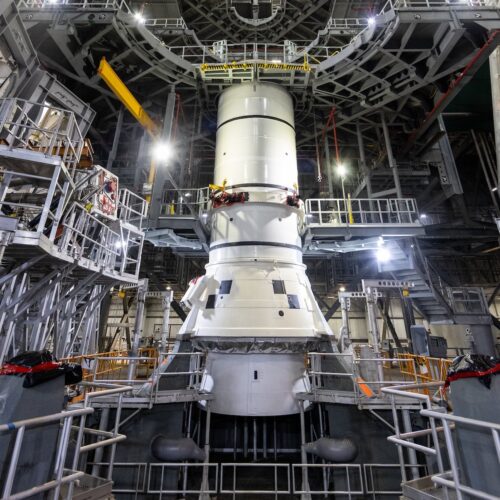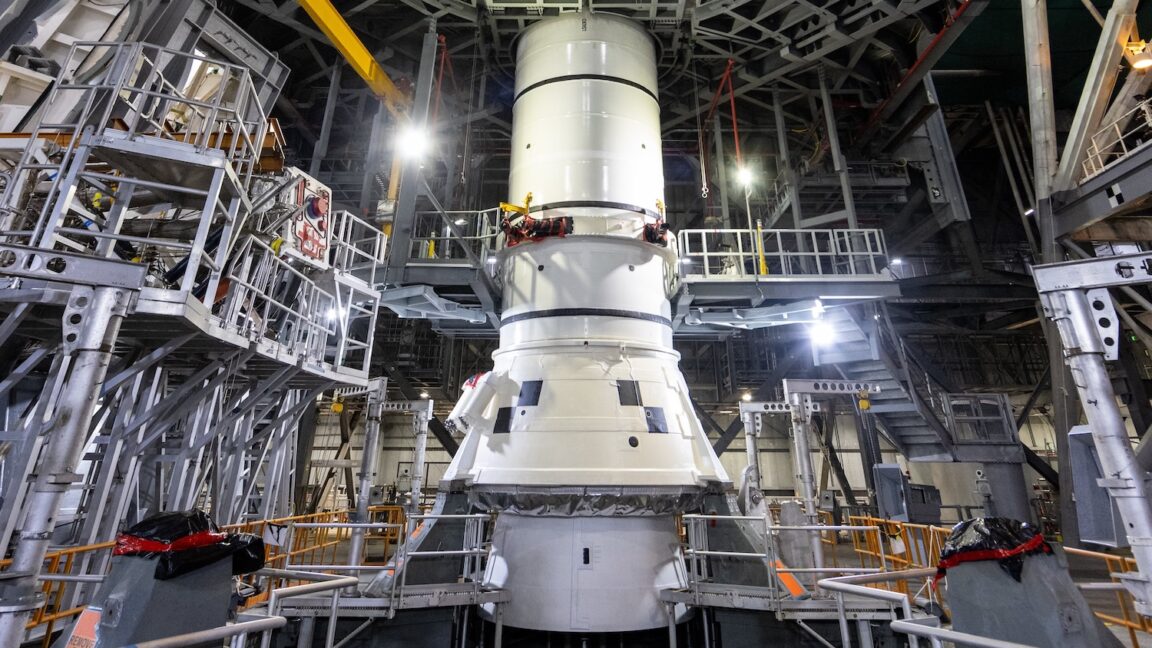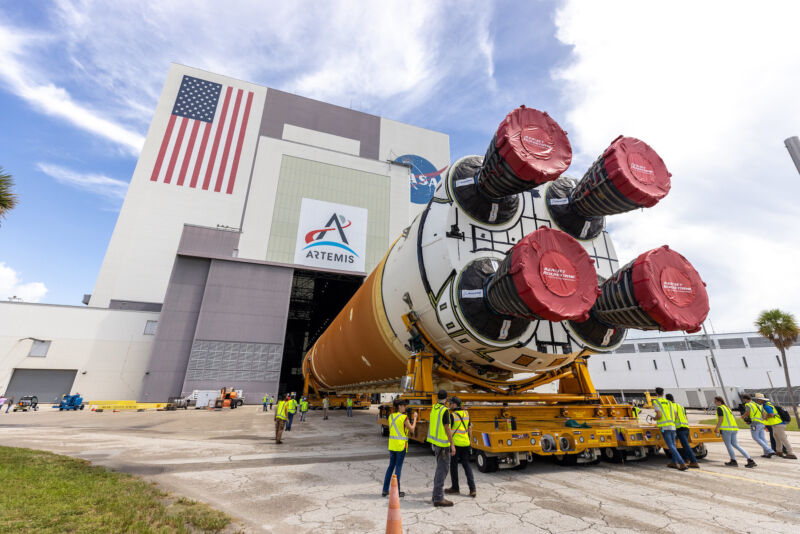NASA is stacking the Artemis II rocket, implying a simple heat shield fix
The Space Launch System rocket that will dispatch four astronauts on the first Moon mission in more than 50 years passed a major milestone Wednesday.
NASA said ground teams inside the Vehicle Assembly Building (VAB) at Kennedy Space Center in Florida lifted the aft assembly of the rocket's left booster onto the mobile launch platform. Using an overhead crane, teams hoisted the left aft booster assembly—already filled with pre-packed solid propellant—from the VAB transfer aisle, over a catwalk dozens of stories high and then down onto mounting posts on the mobile launcher.
This marks the start of stacking for the second SLS rocket earmarked to launch NASA's Artemis II mission and slated to send NASA astronauts Reid Wiseman, Victor Glover, Christina Koch, and Canadian astronaut Jeremy Hansen on a 10-day flight around the far side of the Moon. Artemis II will be the first crewed flight of NASA's Artemis program and the first time people fly on the SLS rocket and Orion spacecraft.


